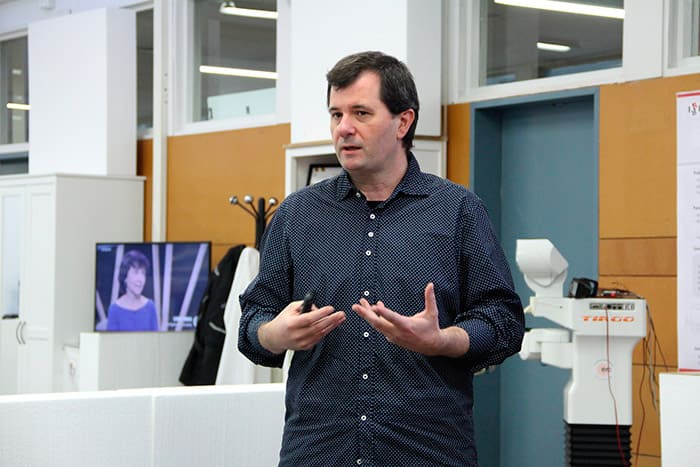Program
(Tentative)

The panel sessions are organized as Oxford style debates and panellists are invited to argue FOR or AGAINST the session topic.
Stances are highlighted in each panellist card.
Panel session #1 - Personalization relinquishes user autonomy
The design of personalised social robots must find a delicate balance between empowering the user and preserving their autonomy to avoid fostering overdependence and diminishing self-sufficiency.
Paper session (Accepted papers):
5 min presentation + 2 min Q&A Schedule might be updated
- "Exploring how users across cultures design and perceive multimodal robot emotion" - Mathieu DePaul, Dagoberto Cruz-Sandoval and Alyssa Kubota
- "Personalising Explanations and Explaining Personalisation" - Tamlin Love, Antonio Andriella and Guillem Alenyà
- "Learning Human-Robot Handshaking Preferences for Quadruped Robots" - Alessandra Chappuis, Guillaume Bellegarda and Auke Ijspeert
- "Robots as Mediators to Resolve Multi-User Preference Conflicts" - Aniol Civit, Rebecca Stower, Iolanda Leite, Antonio Andriella and Guillem Alenyà
- "EVOLVE: Emotion and Visual Output Learning via LLM Evaluation" - Jordan Sinclair and Christopher Reardon
- "Detection of EEG ErrPs with no a priori knowledge of the occurrence time of stimuli" - Alessandra Fava, Valeria Villani and Lorenzo Sabattini
Coffee Break
The Keynote Speaker:
"Tempted by the promise of a different life": Technocratic Persuasion to Accept the Status Quo and Adopt Robots
Abstract: For a long time in robotics, we've perpetuated a techno-utopian future where robots seamlessly integrate into our lives, doing our chores, making our meals, taking on repetitive work - with the goal of freeing us up to do something better. We've worked tirelessly to convey this message, including trying to solve the “problem” of robot adoption via increasingly adaptive, interactive, and personalized robots. However, what happens if/when we get good at this? Despite our best intentions, we run the risk of our robots being used to reinforce the status quo, thus widening economic and health disparities for billions of people. This talk will explore key constructs from other disciplines to help frame these challenges, and discuss ways we roboticsts can pivot to better contextualize our work to help prevent dystopian narratives from coming to fruition.
Panel session #2 - Personalization reinforces social stereotypes and biases
Personalised robots help adapt to user preferences and habits but at the same time they risk narrowing users' world-views and hinder opportunities for growth by overly customising experiences.








